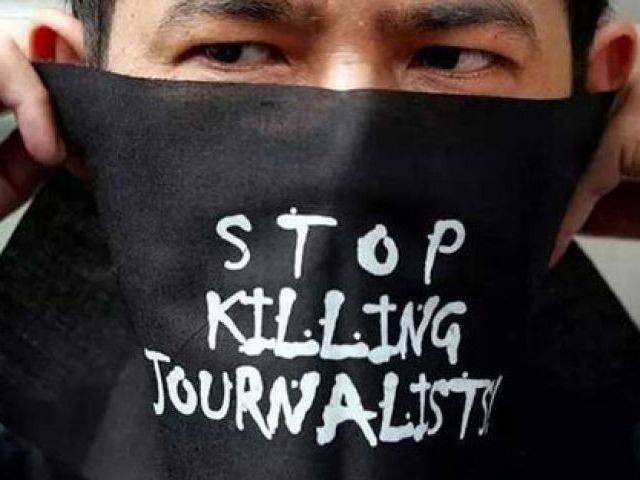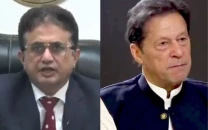Year ends with record number of media casualties
Gaza emerges as the deadliest place, with Pakistan, BD as most dangerous outside active conflict zones

For journalists, the cost of speaking truth to power has never been higher. Media practitioners around the world endured a brutal 12 months, with killings reaching a five-year high in 2024.
Gaza, according to Reporters Without Borders (RSF), was the deadliest place for journalists, while Pakistan, Bangladesh, and Mexico were ranked among the most perilous countries outside active conflict zones.
In its annual roundup, the Paris-based media watchdog painted a grim picture of the deliberate targeting of reporters in conflicts and repressive regimes, warning of escalating threats to journalists worldwide and insisting that dying must never be accepted as an occupational hazard for the members of the press.
Pakistan, reeling from another year of media tragedies, recorded seven journalist killings, cementing its place as one of the world's deadliest countries for reporters. Mexico saw five assassinations, attributed to gangs and armed factions, while in Bangladesh, a violent crackdown on protests left five journalists dead as security forces targeted them to stifle coverage of unrest that ultimately toppled Sheikh Hasina's government. India, meanwhile, faced scrutiny for its relentless legal assault on independent journalists in the occupied territory of Jammu and Kashmir and the incarceration of five media workers.
Even in lesser-reported conflicts, journalists continue to face significant dangers, the document revealed. Sudan has become a death trap for reporters caught between warring military and paramilitary factions. In Myanmar, three journalists were killed, a reminder of the perils faced by media workers in the region's often-overlooked conflict zones.
When asked about factors contributing to the consistent decline in press freedom in the global south, particularly India, Bangladesh and Pakistan, Kenneth Roth, former executive director, Human Rights Watch, said: "The commonality is that when governments take an autocratic turn, becoming more interested in preserving their power than serving their people, the last thing they want is media scrutiny." An independent media, Roth said, is the best way to inform the public of a government's self-serving behavior. "Rather than change that behavior, these governments try to silence the messenger. For this reason, attacks on the media are often an early-warning sign of a government's evolution toward self-protection and corruption," he explained.
On the situation in Pakistan, the former HRW executive director said: "We should look at such attacks on independent journalism as a sign that the authorities are up to something that they don't want the public to know too much about." Roth urged the people of Pakistan not to abandon their quest for democracy. "They should stand up for that freedom as a critical part of their defense of democracy."
Global priority
On the question of press freedom falling off the global priority list, and potential consequences of this neglect, Roth said: "When we see severe violence in the world - in Ukraine, Gaza, Myanmar, Sudan - it is perhaps not surprising that matters of censorship become a second-order concern. But it is a mistake to treat the two as unrelated."
In Gaza, where more than 145 journalists have been killed, including 35 whose deaths were linked to their jobs, he lamented the Israeli government's efforts to block most independent reporters, limiting coverage of its extensive bombing campaign and the starvation of Palestinian civilians. Similarly, he poured scorn on the Russian government for silencing the media to prevent citizens from questioning Vladimir Putin's colonial invasion of Ukraine and his war crimes against civilians. "A vibrant, independent media is essential for exposing and curbing wartime atrocities against civilians," Roth said.
Beyond physical dangers, journalists are increasingly targeted for their work. Many are arrested, charged, or harassed simply for reporting on critical issues. Meanwhile, the threat of captivity looms large for many media professionals. At least 55 journalists are currently being held hostage worldwide, according to the report. Syria accounts for the majority, with 38 journalists held captive, followed by Iraq with nine, Yemen with five, Mali with two, and Mexico with one.



















COMMENTS
Comments are moderated and generally will be posted if they are on-topic and not abusive.
For more information, please see our Comments FAQ